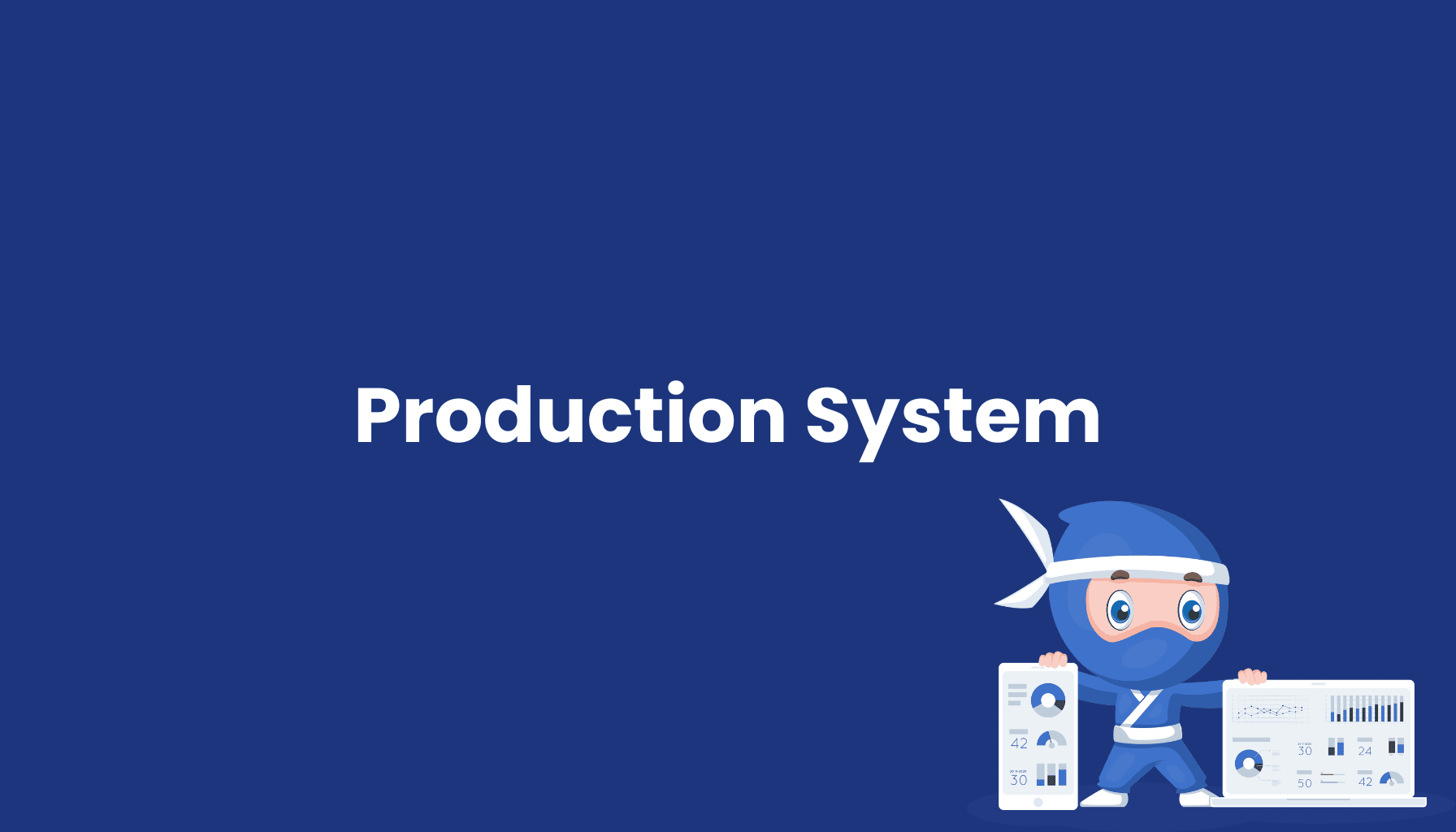Production System

What is a Production System?
A production system refers to the entirety of processes, methods, and resources used within a company to manufacture products. It encompasses the organization, planning, and execution of production activities to achieve the desired product output.
The term "production system" is commonly used in production management to describe the interaction of people, machines, materials, and information necessary to conduct production processes effectively and efficiently. Production systems play a pivotal role in manufacturing industries, significantly impacting production efficiency, quality, and flexibility.
Structure of a Production System
A production system consists of multiple elements that interact to optimize the production process. The structure of a production system is based on several key aspects:
- Production: The core manufacturing process where raw materials are transformed into finished products.
- Systems: Various systems, such as machinery, IT solutions, or MES (Manufacturing Execution Systems), which support and monitor the production process.
- Organization: The company's structure and workflow management, ensuring efficient resource utilization.
- Processes: The sequence and interaction of individual production steps that define the manufacturing process.
- Output Systems: Systems that control and monitor the final output in the form of products or semi-finished goods, ensuring the production process concludes efficiently and that product delivery is coordinated effectively.
Principles of a Successful Production System
The principles of a successful production system focus on optimizing processes and utilizing resources efficiently. Key principles include:
- Increasing Efficiency: Minimizing waste (lean production) and maximizing production capacity.
- Quality Control: Continuous monitoring and improvement to maintain or enhance product quality.
- Flexibility: Adjusting the production system to meet new demands, such as varied quantities, different products, or innovative technologies.
- Data Integration: Using real-time data to optimize production and respond swiftly to issues.
- Strategic Development: Developing strategies to improve production systems and adapt them to market demands, which may include optimizing the supply chain, increasing production flexibility, or implementing new technologies.
Production Systems in Practice
Production systems vary by industry and manufacturing environment. A well-known example is the Toyota Production System (TPS), which is based on lean production principles and serves as a model for many modern production systems. Other examples include workshop production, assembly lines, and automated facilities.
Modern production systems rely on advanced technologies like MES, which seamlessly integrate production processes with higher-level company management. MES systems provide real-time data, allowing precise monitoring and adjustment of production processes while supporting process optimization.
An essential aspect of production systems is considering the entire product lifecycle, ensuring that all processes — from product development to disposal or recycling — are integrated and optimized for maximum efficiency.
Importance of Production Systems for Businesses
A well-structured production system is crucial to a company's success, enabling efficient use of production factors (labor, capital, raw materials) and reducing production costs. A carefully designed production system also increases flexibility, allowing companies to respond to changing market demands or technological developments.
With standardized production systems, companies can:
- Shorten product lifecycles and respond quickly to market changes.
- Minimize costs by optimizing production workflows and reducing downtime.
- Enhance quality and productivity by identifying and addressing bottlenecks early.
Methods and Optimization in Production Systems
Continuous optimization of production systems is a key success factor. Common methods include:
- Lean Production: A concept focused on reducing waste and improving efficiency.
- Just-in-Time (JIT): A method where materials and products are delivered or produced exactly when needed to minimize inventory costs.
- Kaizen: The continuous improvement process aiming for small, incremental improvements in production processes.
These methods contribute to more efficient production systems and support companies in achieving their business objectives.
Production Systems and MES (Manufacturing Execution Systems)
In modern facilities, MES systems play a central role in production systems, linking production control with business management and enabling real-time monitoring of production processes. With MES, companies can:
- Collect and analyze data from various manufacturing areas.
- Optimize production by identifying bottlenecks and inefficiencies.
- Improve quality and productivity through continuous monitoring and adjustments to the production process.
Conclusion
A production system is the backbone of a company’s manufacturing operations. By integrating modern technologies like MES and applying proven methods, companies can optimize their production processes, increase productivity, and achieve their business goals more efficiently.
Continuous optimization and adaptation of the production system to evolving market conditions are essential for long-term success. Production systems combine strategies aimed at increasing efficiency and flexibility to maximize quality and output.




